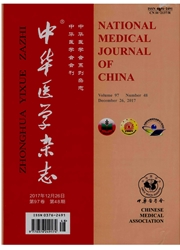

 中文摘要:
中文摘要:
目的探讨toll样受体4(TLR4)在低剪切力(LSS)诱导的动脉内膜增生中的作用。方法应用TLR4。和对照的C57BL/6J小鼠,聚乙烯套囊制作小鼠颈动脉LSS模型,低剪切力装置处理培养的血管内皮细胞制作体外低剪切力细胞模型,常规病理切片和HE染色观察血管形态改变,Western印迹检测TLR4蛋白水平,RT-PCR检测TLRd、IL-1B、IL-6和TNF-d的mRNA表达情况,应用DNA合成率检测细胞增殖率。结果LSS明显促进正常小鼠颈动脉内膜增生,但对TLR4‘小鼠仅引起轻度内膜增生(42.67±16.46比7.034-2.95,P〈0.05);LSS上调正常小鼠颈动脉中TLR4蛋白表达(2.30±0.66比0.16±0.10,P〈0.05)和促炎因子IL-1B(6.52±3.15比1.65±0.45,P〈0.01)、IL-6(16.174-7.49比6.504-1.84,P〈0.01)和TNF-0【(9.984-3.77比2.724-1.03,P〈0.01)的mRNA表达,但对TLR4。小鼠仅引起IL-6和TNF.ol的mRNA表达增多;LSS诱导培养的内皮细胞增殖,TLR4过表达显著增强内皮细胞的增殖能力(1774-33比83±15,P〈0.05),而TLR4基因沉默则明显降低其增殖能力(40-4-8比83±15,P〈O.05)。结论TLR4在LSS诱导的动脉内膜增生中起重要作用:KSS可诱导TLR4的上调而使其下游炎性因子合成增加,从而促进了内皮细胞的增殖和迁移,最终导致动脉内膜增生。
 英文摘要:
英文摘要:
Objective To determine the role of toll like receptor 4 (TLR4) in intimal hyperplasia induced by low shear stress (LSS). Methods TLR4^[-/-] mice and control mice C57BL/6J were used. Polyethylene cuff was placed on murine carotid to establishing a LSS modal. Cultured vascular endothelial cells under LSS condition were used as an in vitro LSS cell model. Intimal hyperplasia was evaluated pathologically. TLR4 was tested by Western blot and the expression of IL-16, IL-6 and TNF-o~ mRNA were detected using RT-PCR. Cell proliferation was determined by detecting DNA synthesis. Results LSS elicited significant carotid intimal hyperplasia in normal mice but a slight neointima formation in TLR4-/- mice (42. 67 + 16. 46 vs 7.03 _+2. 95, P 〈0. 05). LSS upregulated the expression of TLR4 (2. 30 -+0. 66 vs 0.16+0.10, P〈0.05), as well as the mRNA of IL-l ~ ( 6. 52 -+ 3.15 vs 1.65-+0.45, P〈0.01), IL-6 ( 16. 17 _+ 7.49 vs 6. 50 _+ 1.84, P 〈 0. 01 ) and TNF-ct (9. 98 _+ 3.77 vs 2. 72 _+ 1.03, P 〈 0. 01 ) in normal mice. However, only moderate increases in IL-6 and TNF-ct mRNA were observed in TLR4"/" mice. LSS induced the proliferation in cultured endothelial cells. And it was further enhanced by TLR4 overexpression (177_+33 vs 83 _+15, P〈0.05) but attenuated by TLR4 silencing (40 +8 vs 83 -+15, P〈0.05). Conclusion TLR4 plays an important role in LSS-induced intimal hyperplasia. It is likely that LSS induces the proliferation of endothelial cells through TLR4-mediated inflammatory reaction and ultimately promotes intimal hyperplasia.
 同期刊论文项目
同期刊论文项目
 同项目期刊论文
同项目期刊论文
 PPARg attenuates intimal hyperplasia by inhibiting TLR4-mediated inflammation in vascular smooth mus
PPARg attenuates intimal hyperplasia by inhibiting TLR4-mediated inflammation in vascular smooth mus Impaired Peroxisome Proliferator-activated Receptor-Contributes to Phenotypic Modulation of Vascular
Impaired Peroxisome Proliferator-activated Receptor-Contributes to Phenotypic Modulation of Vascular Association between NADPH Oxidase p22(phox) C242T Polymorphism and Ischemic Cerebrovascular Disease:
Association between NADPH Oxidase p22(phox) C242T Polymorphism and Ischemic Cerebrovascular Disease: 期刊信息
期刊信息
